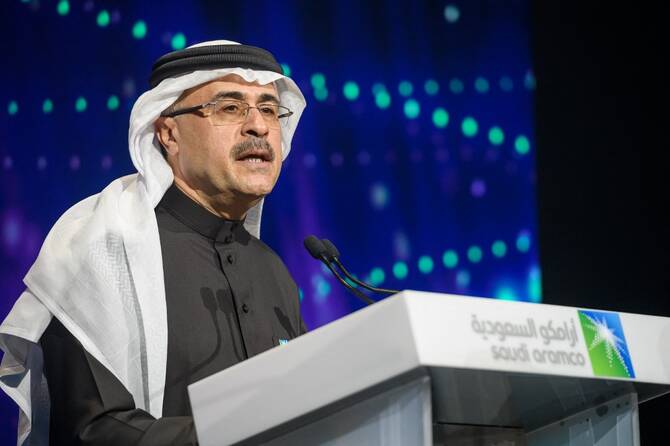HOUSTON: Deepwater oil drilling can be expensive, time-consuming and a hard sell to investors. But the world’s top energy firms are restarting their search for giant oilfields under the ocean after a two-year lull.
A recovery in oil prices to about $50 a barrel from a 12-year low in 2016 is reviving oil majors’ appetite for risk.
Reductions in offshore production costs mean that some projects may be able to compete with North American shale fields, executives said at an energy conference in Houston this week.
The recovery in the industry has so far been focused on onshore shale output from the largest US oilfield, the Permian Basin.
“Our competition over the past years has evolved from ‘we want to be the best in deepwater’ to ‘we want to compete with shale’ to ‘we want to beat the Permian,’” Wael Sawan, Royal Dutch Shell’s executive vice president for deepwater, said in an interview.
After cutting the cost of deepwater development, companies are also reviving the search for new resources.
They are focusing exploration efforts on areas close to existing fields to maximize the chances of discovery and minimize costs. Many such areas are in Brazil, the Gulf of Mexico and Southeast Asia.
“Right now, we have entered the best time in the last decade to be in the exploration business,” Gregory Hebertson, who heads Murphy’s western hemisphere exploration, said at the CERAWeek conference in Houston. “There is probably a two- or three-year window that we can capture the cost efficiency in the market.”
Discovering new resources is essential for oil firms to grow and to offset natural decline of fields. But deepwater exploration requires money, time, expertise — and luck.
Some shareholders would prefer that oil firms stick to other, less risky growth options, said Federico Arisi Rota, executive vice president Americas for Italy’s Eni, which operates major offshore drilling projects.
Foreigners eye US pipeline investments
Foreign institutional investors, including sovereign wealth funds, are studying investments in the US interstate oil and gas pipeline network as a way to obtain recurring returns in a low interest-rate environment.
Dealmakers said they are advising funds, including from Asia, Australia and the Middle East, about potential investments that could bring billions of dollars of new capital to the sector.
Other infrastructure areas also have attracted institutional investors.
Drawn to the potential for steady long-term incomes, they have purchased stakes in companies operating toll roads, airports and utilities.
Dealmakers said more foreign entities could start buying directly into pipeline projects as a number of factors converge to eliminate such obstacles.
Structuring an investment to address the tax implications is already fairly straightforward, according to an energy lawyer.
The election of President Donald Trump, and his promised wave of deregulation, is expected to reduce Committee on Foreign Investment in the United States’ (CFIUS) objections to transactions.
One dealmaker noted the pending purchase of the Port Arthur refinery, the largest in the US, by Saudi Aramco had not triggered any CFIUS actions. That deal is on course to close in the second quarter.
Infrastructure needs in certain regions of the country should also provide opportunities for further capital deployment, said Osmar Abib, global head of oil and gas, global energy investment banking, at Credit Suisse who spoke on the sidelines of the CERAWeek energy conference.















